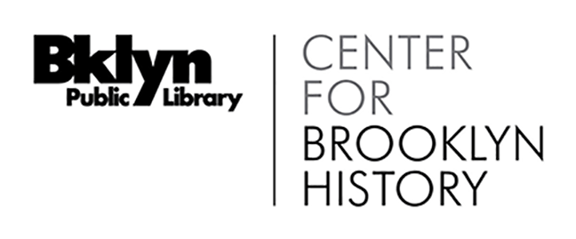Brooklyn charitable organizations for the poor collection
Call Number
Date
Creator
Extent
Language of Materials
Abstract
In the late 18th and early 19th centuries, as New York City experienced a dramatic rise in poverty, public welfare took up more of the city's annual budget than any other issue. In response to the growing welfare burden, a number of charitable organizations were established to provide relief for the poor. Charity organization became more proficient and specialized throughout the 19th century as New York's poverty rate continued to rise. The Brooklyn charitable organizations for the poor collection spans the period 1809 to 1959 and contains publications and ephemera documenting the activities of a significant number of Brooklyn-based public welfare organizations. Items include annual reports, manuals, constitutions, bylaws, articles of incorporation, handbooks, directories, newsletters, journals, historical sketches, pamphlets, and programs.
Historical Note
In the late 18th and early 19th centuries, as New York City experienced a dramatic rise in poverty, public welfare took up more of the city's annual budget than any other issue. In response to the growing welfare burden, a number of charitable organizations were established to provide relief for the poor. One of the city's first such charities was the Humane Society, which was established in 1787 and provided medical care and food for impoverished citizens. By the mid-19th century, advanced levels of charity organization allowed for the formation of a number of specialized poor-relief charities. These specialized organizations either served a particular social or ethnic group, or provided a particular type of charitable service, such as medical care or the offering of moral and spirtitual counseling. As poverty in New York continued to intensify in the late 19th century, the settlement house movement began to take root, with the City's first settlement house, the Neighborhood Guild, being founded in 1886. In addition to their major functions, which included advocating for child labor reform and tenement house legislation, settlement houses also pressed for the building of public recreational areas and the improvement of public health and education. In the years leading up to the Great Depression, attitudes toward poverty began to reflect the notion that public welfare was the responsibility of the state rather than private citizens; consequently, state-funded initiatives, such as the New York State Public Welfare Act of 1929, began to provide services that were previously offered by private charities. Several state-funded public welfare programs would emerge throughout the 20th century, but as these programs achieved only varying levels of success, a number of private charities, such as the Community Service Society (founded in 1939), continued to offer relief to New York's poor.
Sources:
- Hemphill, Clara J., and Raymond A. Mohl. "Poverty," in The Encyclopedia of New York City, ed. Kenneth T. Jackson. New Haven: Yale University Press; New York: New-York Historical Society, 1995, 932-934.
Scope and Contents
The Brooklyn charitable organizations for the poor collection spans the period 1809 to 1959 and contains publications and ephemera documenting the activities of a significant number of Brooklyn-based public welfare organizations and settlement houses. The materials illuminate the various social and ethnic groups these organizations served, as well as the wide range of charitable services they offered, including the providing of food, shelter, material and monetary donations, educational and recreational programs, and religious services. Items in the collection include annual reports, manuals, constitutions, bylaws, articles of incorporation, handbooks, directories, newsletters, journals, histories, pamphlets, and programs. Organizations represented include the following:
American Female Guardian Society
Boys' Welcome Hall Association
Brooklyn Council for Social Planning, Veterans' Affairs Committee
Brooklyn Flower and Fruit Charity
Brooklyn Guild Association
Brooklyn Holman Association
Brooklyn Italian Settlement Society
Colony House
Defenders' Auxiliary Corps
Fort Hamilton Relief Society
Grand Army of the Republic for Kings County, Bureau of Employment and Emergency Fund
Industrial Restaurant and Training School Association
Kings County Humane Society
Mount Prospect Industrial School Society
Open Air Workers' Association of America
Oscawana Brownies
Sailors' Coffee House Company
School Settlement Association
State Charities Aid Association, Kings County Visiting Committee
Wayside Home (also represented under its later name, the Wayside Home School for Girls)
Willoughby House Young Women's Settlement (also represented under its later name, the Willoughby House Settlement)
Subjects
Organizations
Genres
Topics
Conditions Governing Access
Open to researchers without restriction.
Preferred Citation
Identification of item, date (if known); Brooklyn charitable organizations for the poor collection, 1985.104, Box and Folder number; Brooklyn Historical Society.
Immediate Source of Acquisition
Portions of this collection were the gifts of Brooklyn Italian Settlement Society, 1915, 1922, and 1926; H. Hallock Brown, 1966; Margaret S. Hall, date unknown; Mrs. Howard Rickerson, date unknown; and Alden J. Spooner, 1863. Sources and dates of acquisition for remaining items in the collection are unknown. The collection was formally accessioned in 1985.
About this Guide
Processing Information
Minimally processed to the collection level.
Sponsor Note
Note Statement
Repository
Container
This finding aid does not include an online listing of contents.
To learn about viewing this collection in person, please contact cbhreference@bklynlibrary.org.
